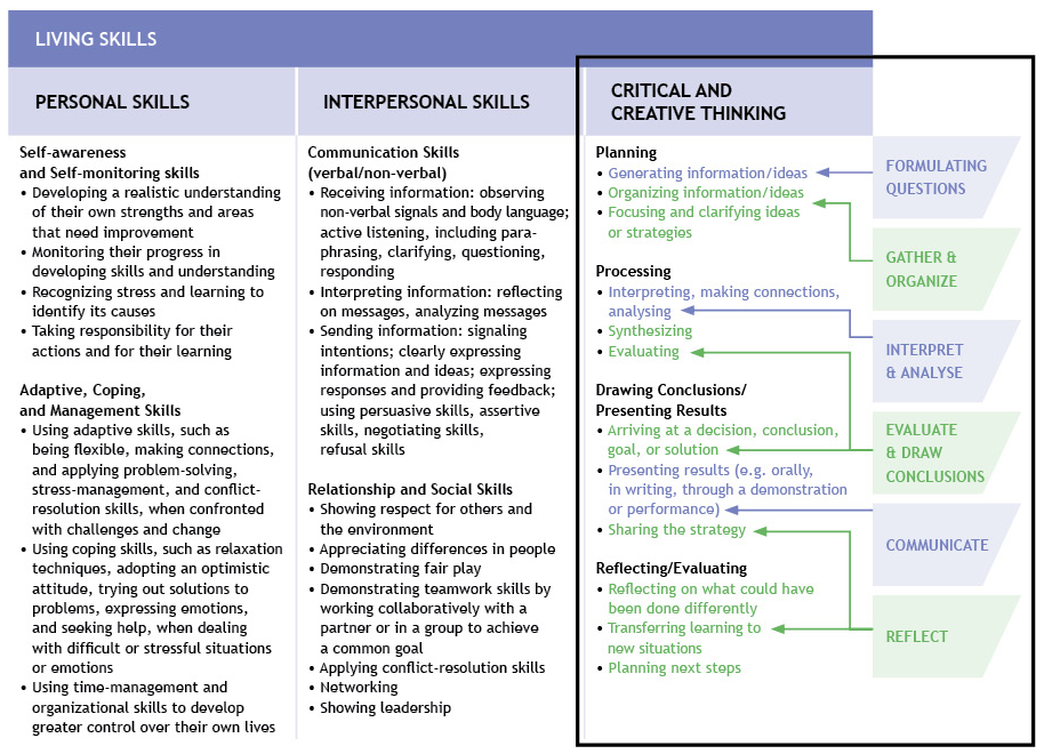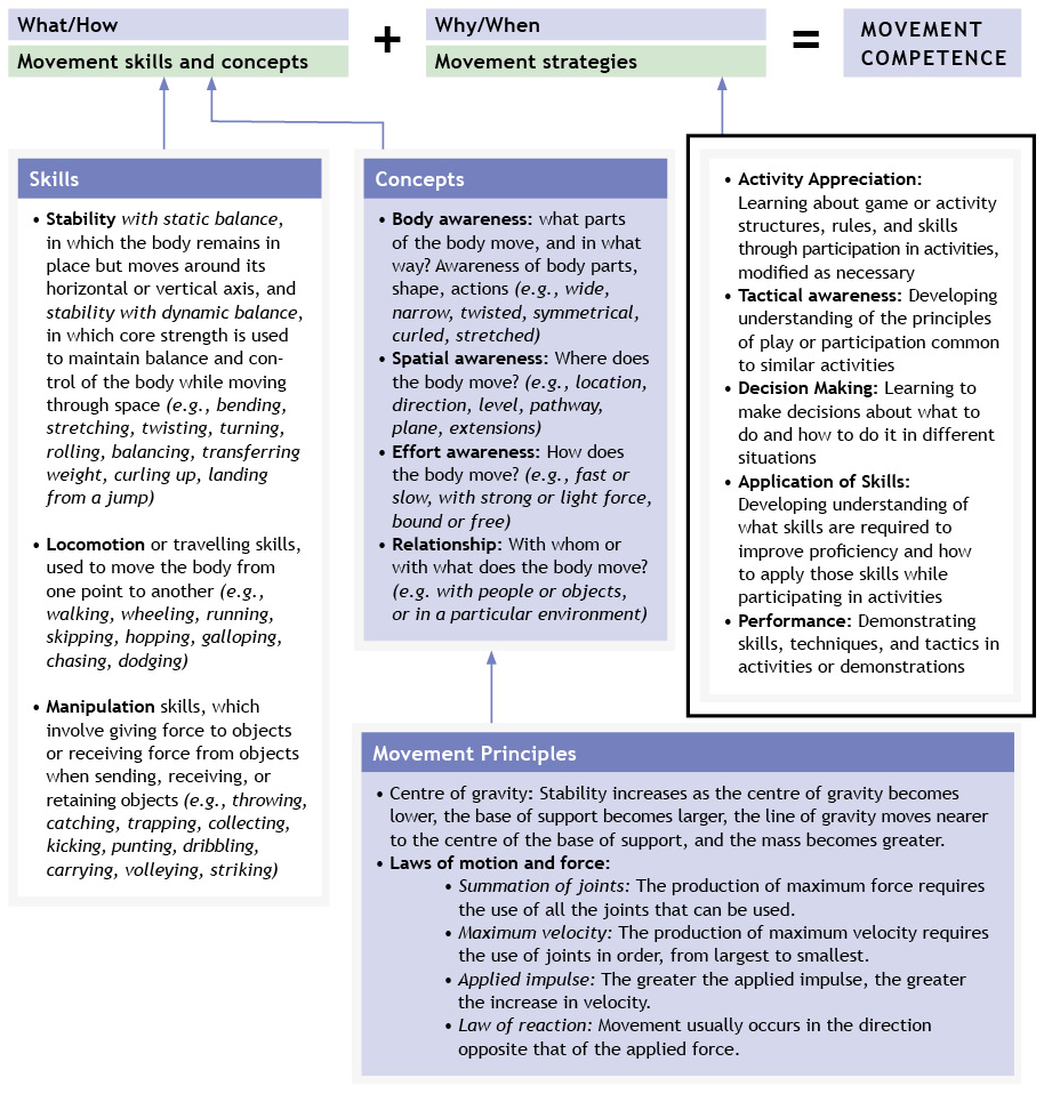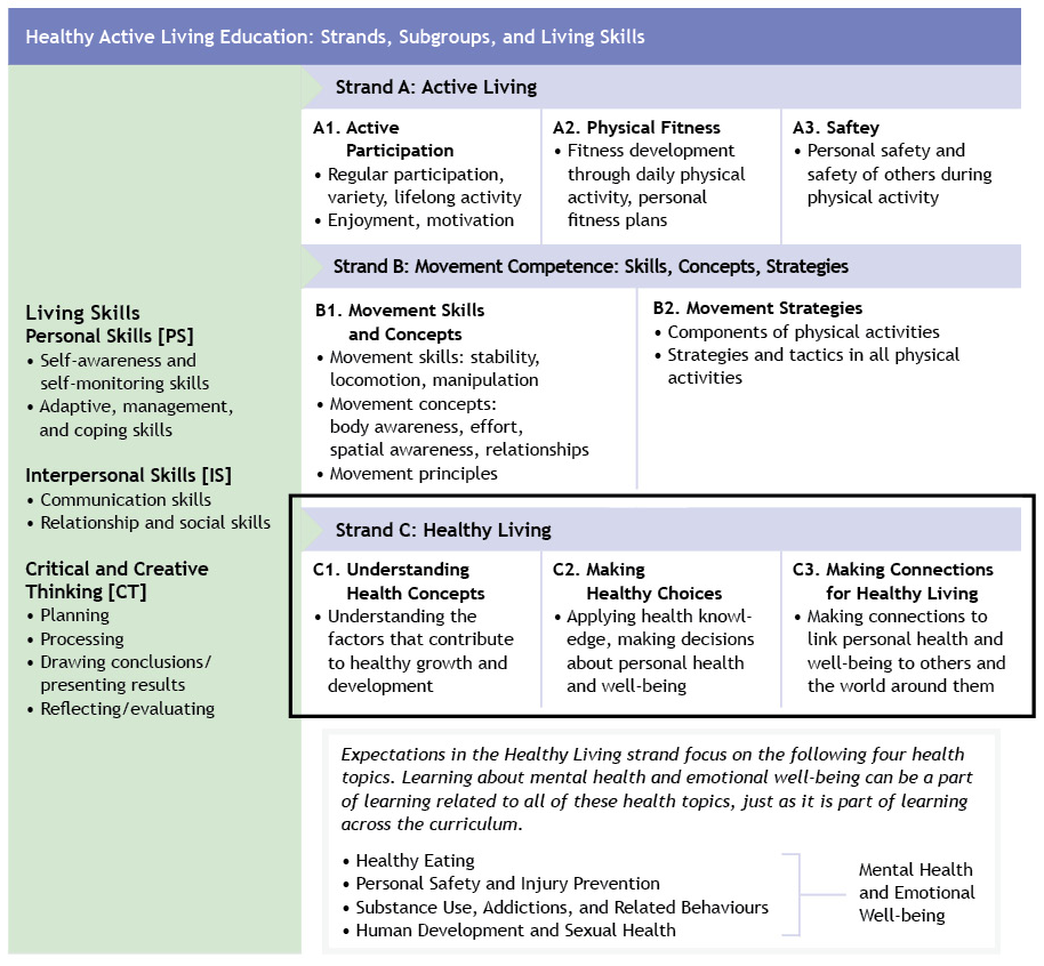In Health and Physical Education (H&PE), students have the opportunity to develop inquiry skills in the Active Living, Movement Competence, Healthy Living strands and within the expectations of the Living Skills. The 2015 Health and Physical Education Curriculum embeds “critical thinking skills such as questioning, predicting, analysing, synthesizing, examining opinions, identifying values and issues, detecting bias, and distinguishing between alternatives” in the curriculum expectations (Ontario Ministry of Education, 2015). These critical-thinking skills are the same skills needed and used in inquiry-based learning.
The Living Skills expectations from the 2015 Ontario Health and Physical Education Curriculum are taught in an integrated manner across all strands of the curriculum. Within these specific expectations, there is expected learning related to students’ knowledge of themselves, coping with challenges, interacting with others (collaboration and communication), and using a process for critical and creative thinking—all concepts reflective of the inquiry process.
The inquiry skills for formulating questions, gathering and organizing, interpreting and analysing, evaluating and drawing conclusions, communicating new knowledge, and reflecting are all found within the Living Skills expectations. Figure 2 Inquiry Components in the Living Skills: Critical and Creative Thinking Example illustrates how inquiry skills can be integrated within the Critical and Creative Thinking Living Skills. A similar approach can be taken to make connections between the other Living Skill areas and inquiry-based learning.
Figure 2: Inquiry Components in the Living Skills: Critical and Creative Thinking Example (Ontario Ministry of Education, 2015)

Within the Movement Competence strand students learn about strategies connected to various games and activities by actively exploring and investigating the strategies and tactics of the game or activity through modified versions of the games or activities. Students interpret and analyse the game or activity structure and the results from different tactics tried in order to make connections to other games or activities determining which strategies and tactics can be transferred to other games or activities in the same games category.
The Teaching Games for Understanding methodology supports many components of inquiry-based learning in which students learn through “doing” and educators are facilitators of learning who ask open-ended questions and encourage students to ask questions in order to help them discover and experiment with tactical decisions and solutions. Students can communicate and demonstrate their new learning through a physical performance.
Figure 3: Inquiry Components in the Movement Competence: Skills, Concepts and Strategies Strand (Ontario Ministry of Education, 2015)

In the Healthy Living strand there is shift from a focus on content knowledge to focusing on health literacy, which means building students’ skills and understanding of how to and use health information to make healthy choices and how to make connections outside of oneself for healthy living. The inquiry process can be used as a vehicle through which students develop knowledge and skills related to the various health concepts and communicate their learning to promote healthy living with others, across their school, and in the community.
Figure 4: Inquiry Components in Healthy Living (Ontario Ministry of Education, 2015)

References
Ontario Ministry of Education. (2015). The Ontario Curriculum, Grades 1 to 8: Health and Physical Education, 2015 (Rev. ed.).


